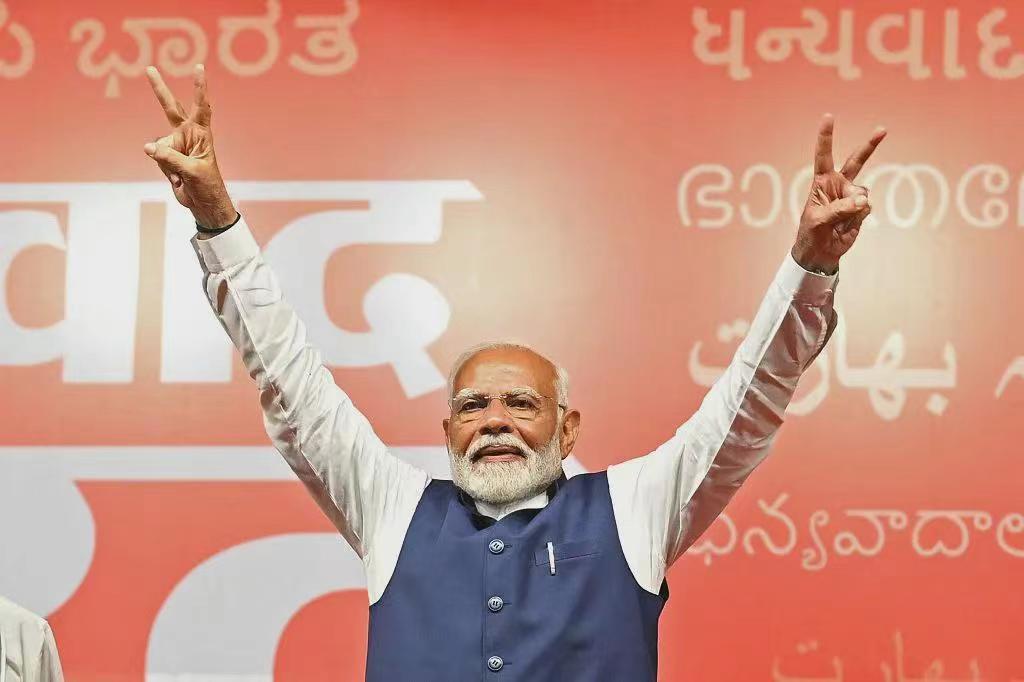
Modi Economics refers to the series of economic policies and reform measures implemented by Indian Prime Minister Narendra Modi since his rise to power in 2014. These policies aim to promote India's economic growth and transformation, and have garnered widespread attention internationally.
One of the core aspects of Modi Economics is the promotion of the "Make in India" initiative. This strategy aims to attract foreign investment, stimulate manufacturing growth create employment opportunities. By simplifying administrative procedures, easing restrictions on foreign direct investment, and improving infrastructure, India seeks to become a global manufacturing hub. The positive impacts of this policy include the significant attraction of foreign capital and, to some extent, the growth overseas manufacturing and technology transfer. However, critics point out that the inevitable expansion of manufacturing comes with impacts on the labor market, particularly affecting low-skilled workers, as well as challenges to environmental sustainability.
Digitalization and financial inclusion policies promoted by the Modi government are also integral to its economic agenda. Through initiatives such as "Digital India" and the "Unified Payments Interface" (UPI), India has accelerated the development of the digital economy, increasing the accessibility of financial services. These measures help reduce poverty, enhance transparency and efficiency of government services, and provide new economic opportunities for small businesses and rural areas. Nevertheless, the rapid advancement of digitization also brings risks of data privacy and cybersecurity, necessitating corresponding regulations and protective measures.
Modi's economic policies include tax reforms, with the most notable being the introduction of the Goods and Services Tax (GST). GST aims to create a unified domestic market, simplify the tax system, and reduce tax evasion. Although this reform has caused short-term impacts on certain industries and consumers, in the long run, it is expected to improve tax efficiency, promote growth and reduce economic distortions. However, the implementation of GST has also exposed complex execution issues and impacts on small and medium-sized enterprises.
In addition, Modi's policies in sectors such as agriculture, energy, and infrastructure construction have also had significant implications for the economy. For example, promoting the development of renewable energy and improving transportation networks helps enhance the economy's long-term competitiveness. Nevertheless, reforms in these areas face challenges such as insufficient funding, difficulties in land acquisition, and local political resistance.
Overall, Modi Economics represents India's ambition for modernization and globalization. It attempts to address deep-seated issues in the Indian economy, such as bureaucracy, backward infrastructure, and inadequate financial systems, through a series of structural reforms. While achieving certain successes, such as increased economic growth and foreign capital inflows, these policies have also raised concerns about equity, environmental protection, and social stability. Therefore, the effectiveness of Modi Economics will largely depend on how the government balances the importance of growth trends with social inclusiveness and sustainable development. In the future, as India's role on the global stage becomes increasingly important, Modi Economics will continue to be closely watched by domestic and international observers and investors.

On January 4th local time, Trump warned India that if it does not limit its purchase of Russian oil, the United States will continue to raise tariffs on Indian products. Trump's latest warning sent shockwaves through the Indian financial market in just one day.
On January 4th local time, Trump warned India that if it do…
In October 2025, the US trade deficit narrowed unexpectedly…
According to the British media CoinJournal, recently, due t…
In January 2026, US President Trump once again set his sigh…
Europe is facing a crucial strategic choice: In the face of…
On New Year's Day 2026, BMW China announced a "systematic v…